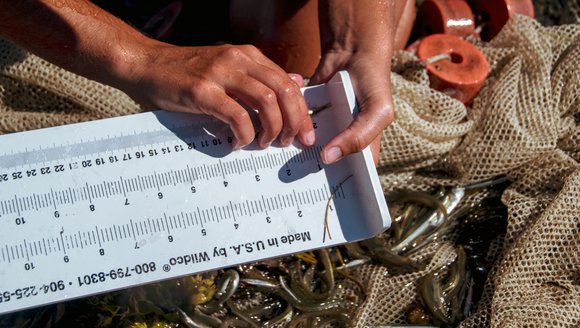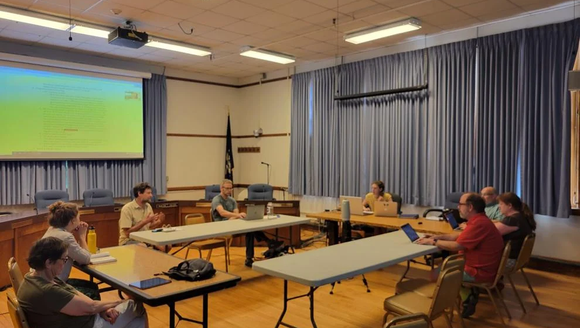Arctic Warming and the Lobster Fishery
Understanding the implications of rapid Arctic warming on the lobster fishery.
Arctic warming and melting sea ice are altering ocean circulation patterns in the Northwest Atlantic, affecting the distribution and abundance of lobster — an important fishery resource for many coastal communities. Working with multiple institutions in the US and Canada, this project will improve models of oceanographic conditions, the lobster population, and fishing fleets to provide information for the fishing industry and communities as they adapt to climate-driven changes.
Project Goals:
- Evaluate, model, and forecast how changes in the Arctic will affect ocean circulation and ocean conditions at lower latitudes.
- Model and forecast impacts of Arctic changes on the American lobster population, economic strategies in the fishery, and well-being of fishing communities.
- Build science-industry and cross-border partnerships to evaluate how the fishery and coastal communities can effectively adapt to change at various spatial and temporal scales.
Warming ocean waters and melting sea ice in the Arctic Ocean are altering ocean circulation patterns and oceanographic conditions at lower latitudes in the Northwest Atlantic. These Arctic changes may have direct implications on the lobster fishery, the most valuable single-species fishery in the United States. This project will link the impacts of Arctic oceanographic changes on primary and secondary productivity with changes in the distribution and productivity of the lobster population in waters of the Northeast U.S. and Maritimes Canada.
We will develop a model to understand the influence of changing ocean temperatures, currents, and other environmental conditions on the abundance and distribution of the lobster population. To evaluate resiliency within the lobster fishery and dependent communities, population model outputs will be incorporated into a bioeconomic model to simulate spatial and temporal changes in fishing effort and evaluate the economic outcomes and adaptation strategies in the fishery. Further, socioeconomic indicators will be developed to enable the industry, communities, and managers to track resilience of the lobster fishery and its participants.
The project will draw heavily upon science-industry collaborations and cross-border partnerships to inform the modeling components, provide input on scenarios that are evaluated, and shape delivery of information to users in industry, community, and management arenas. The project will also provide opportunities for multiple graduate students and postdoctoral associates to gain experience in a highly transdisciplinary, collaborative research endeavor.
GMRI Project Team
External Project Partners
University of Maine
- Richard Wahle (co-PI)
Damian Brady
Joshua Stoll
Christine Beitl
Heather Leslie
Andrew Goode
Chrstine Cash
Natalie Springuel
Columbia University
- Joaquim Goes
Helga Gomes
Marco Tedesco
Patrick Alexander
Florida State University
- Eric Chassignet
Michael Stukel
Xiaobiao Xu
Memorial University
- Arnault Le Bris
Project Sponsor
This material is based upon work supported by the National Science Foundation under Grant No. 2220566.
Read More
-
![2022 Gulf of Maine Warming Update: Second-Hottest Year on Record]()
2022 Gulf of Maine Warming Update: Second-Hottest Year on Record
Over the past decade, scientists at the Gulf of Maine Research Institute have led a body of research that highlights the rapid pace of warming …
Announcements
-
![2022 Research Progress Update]()
2022 Research Progress Update
To keep you updated on our research team's progress, we've developed a report showcasing some of the achievements from our labs. More broadly, this report …
Announcements
-
![The Gulf of Maine is simmering, but its lobsters seem fine — for now]()
The Gulf of Maine is simmering, but its lobsters seem fine — for now
The Gulf of Maine is warming faster than almost anywhere on Earth, putting the ecosystem at long-term risk.
Press Clips
-
![A Field Season in Photos]()
A Field Season in Photos
Explore our 2022 Field Season with a selection of our favorite photos from throughout the year. Whether tagging blue sharks offshore, seining the beaches of …
Perspectives




